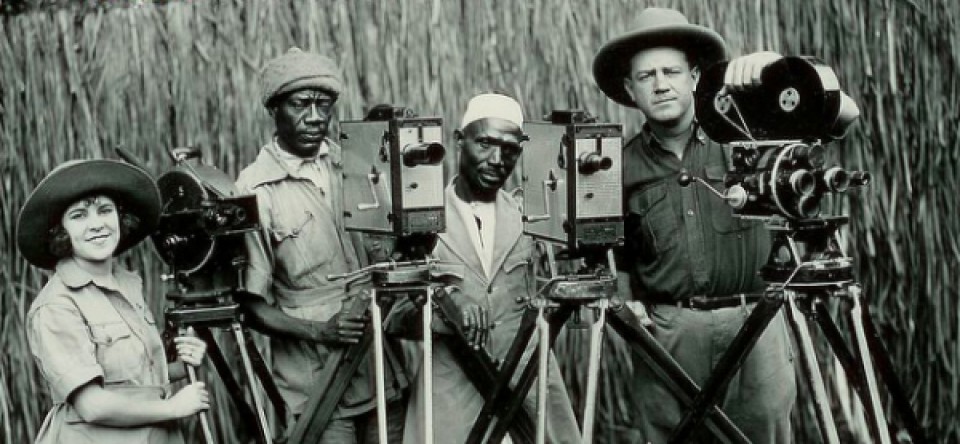In the film, we can see Diouana’ s desire to be like the Whites. Firstly, she calls Jelenik as “destiny” which indicates her inclination towards the lifestyle of the Whites. Destiny also means a predetermined course of events. As such, it can be seen that Diouana has already internalised that the Whites lifestyle is the natural way of life and sooner or later the indigenous cultures in Dakar will be vanished. Although Diouana does not outwardly discard her culture, the desire to follow the Whites can be seen through her clothing.
Diouana adorns herself with fancy dresses, heels and never fails to deck herself with jewellery. Despite Jelenik’s chiding, she still beautify herself with the western clothing. In the later part of the film, we get to know that these clothing belongs to her employer. Adorning herself with her employer’s clothing can be seen as Diouana desire to follow the Whites. Also, I feel that clothing has a semiotic power to suggest a certain social positioning within society. Being dressed in Western clothes is not only a mean of self-respresentation, it was also a means by which allows Diouana to fit and assimilate into the space of France. At the airport, despite the differences in skin colour, Diouana did not stick out like a sore-thumb. It is because, everyone is dressed similar to her. Dressing also gives Diouana the confidence as she held her head high and navigated herself around the foreign airport. This shows the importance of clothing to the supposedly inferior race – the Blacks. Clothing represents a sense of self, one’s culture and roots. The fact that Diouana completely discards her traditional clothing over the Western clothing indicates her desire to follow the Whites as the latter is associated with money, freedom and lavishness.
Moreover, through adorning the clothing of the Whites, Diouana wants to extinguish herself as a slave. When Jelenik gives her house chores to do, Diouana keeps repeating “I am here for the children. Where are they?”. Taking care of the kids gives her the position as a nurturer which gives her power. However, doing house chores is a representation of slavery as Diouana is directly serving her employers and her inferior position is amplified – this is the destiny that she wants to escape from.
Despite changing her outer-look, Diouana is unable to assimilate. This maybe due to the differences in race and the language barrier. When Jelenik told her friend that Diouana does not know French but she is able to instinctively respond to the comments of her employer, her friend commented that Diouana is “like an animal”. It can be seen that Diouana is totally dehumanised. Also in another scene, Jelenik’s friend abruptly stood up and kissed Diouana since he “never kissed a Black woman before”. The irony is that although the film is told from Diouana’s point of view, she is unable to prevent the dehumanisation of herself. This highlights the importance of space and language. One can only truly claim and assert their power at their home. Meaning, they can only helm the power in the place that they come from. Additionally, this power also comes with the knowledge of the authentic language of that particular space (the theme of space and language is seen in Cooper’s King Kong! See my previous blogpost). Diouana’s gaze is not powerful enough to counter her dehumanisation since she is in the space of her coloniser and denied the language of that foreign boundary.
Question: Is Diouana’s death a revolt against the prevalent racism in that country?
